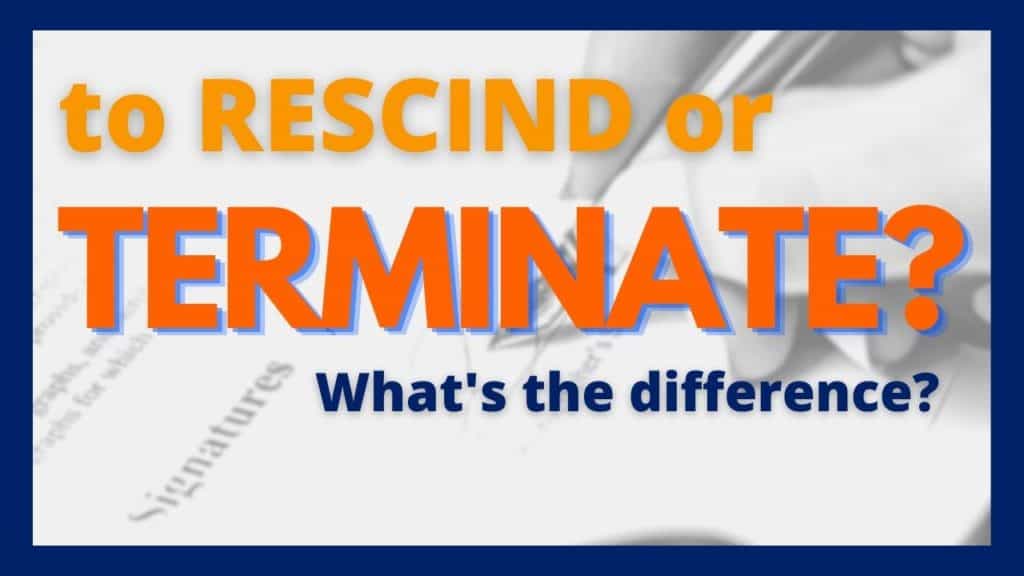Updated May 31, 2021

To rescind or terminate – that’s the question, but what’s the difference?
As a home buyer in Olympia, WA, you have a mutually-agreed-upon purchase and sale agreement with the seller, but a situation arises during the transaction where you cannot go through with the purchase of the home. For example, the home inspection uncovered an issue that is a deal-breaker for you. Or maybe you discovered in the neighborhood’s covenants that they don’t allow dogs and you have three. What do you do – do you rescind or terminate? Is there even a difference?
Definitions
A rescission restores the parties (buyer, seller, brokerages and brokers) as though the agreement was never written. A rescission also releases the parties from any and all present or future liability.
A termination ends the agreement at that point in the agreement. A termination recognizes the agreement (unlike the rescission) and does not release the parties from liabilities.
What to do?
I am not offering any legal advice. Buyers and sellers and their respective attorneys need to determine the best course of action for their particular situation. I am only commenting based on my professional experience as a Realtor.
In many and most instances, a termination is in order.
The language in our purchase and sale agreements in Olympia, WA state in many instances that if a condition cannot be met, then the parties agree to terminate.
For example with the home inspection contingency, the buyer has the option of “disapproving the inspection and terminating the agreement.” But all liabilities are still in place. The inspection contingency also states, “Buyer shall be responsible for all damages resulting from any inspection of the Property performed on Buyer’s behalf.” If the buyer terminates the agreement based on an unsatisfactory home inspection, the buyer is still responsible for any damage. (This is the language that has been agreed to in the purchase and sale agreement.) But if the buyer chooses to rescind, then this agreement and the liabilities do not exist.
Sellers also need to consider this as well. In this example, if damage was done during the home inspection and the damage wasn’t readily known and was discovered weeks later, if the buyer has terminated, then the buyer is still liable for that damage.
So what is the best answer?
Ask your attorney. This answer requires legal advice. If your Realtor is not an attorney, do not take their guidance.
What if the Escrow Company asks for a rescission? Or a termination?
The escrow company is a neutral third party, which cannot offer legal advice. If the closing officer requests a rescission or a termination, they are offering legal advice. Instead, they need to ask for the instructions on how to disburse the earnest money.
Rescission and termination are NOT interchangeable terms. They have completely different meanings. Make sure you understand the meanings and consult with your attorney to determine what course of action is best for your situation.
Watch my video about the difference between a rescission and a termination:
Be sure to also check out my other posts about BUYERS and SELLERS who are canceling their contracts prior to closing:
